Introduction: In this article, Scott Phillips commemorates V-E Day—the day Nazi Germany surrendered in WWII—and reminisces about his father’s involvement in the war. Scott is a genealogical historian and owner of Onward To Our Past® genealogy services.
It had been a long, arduous, and brutal six years of war in Europe. The United States had entered World War II on 7 December 1941 after the Japanese attack on Pearl Harbor. Finally in the spring of 1945, although the war against Japan would last a few more months, Nazi Germany surrendered to the Allies on 8 May 1945—“V-E Day,” which stands for “Victory in Europe.” WWII was finally over in Europe.
Some 16 million Americans served in the armed forces during WWII and more than 400,000 of these Americans died in the line of duty.
Today, which is the 69th anniversary of V-E Day, is a good time for all of us who love and enjoy genealogy and family history to reflect on this historic day.
Victory in Europe Sweeps the Headlines
This front page from a Massachusetts newspaper was typical of newspapers across the United States announcing the important news.
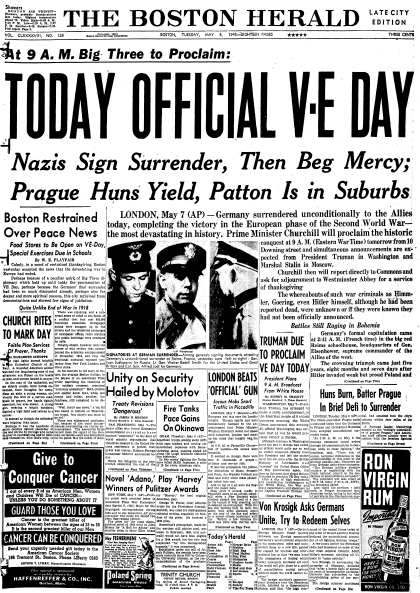
The news was welcome everywhere. Stories abounded in the nation’s newspapers about the impact of the unconditional surrender of the Nazi armies. A good example comes from this Texas newspaper. This old newspaper article explains how one family welcomed the news as the MacWilliams family learned that their daughter, a WAC, and their son, a lieutenant, met in Paris after four years of war. Later, the news story mentions that the MacWilliams’ family also had two more sons serving in the Army. The family impacts of WWII can hardly be underestimated as we do our family histories!
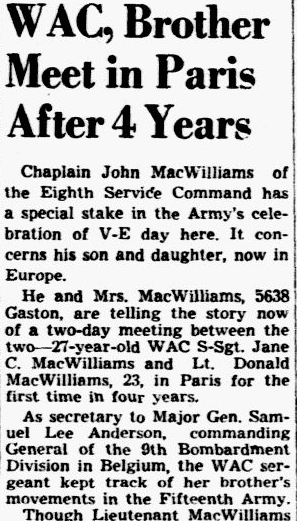
V-J Day Still Months Away
WWII would rage on three more months in the brutal Pacific Theatre until V-J Day (Victory over Japan). Japan announced its surrender on 15 August 1945, with the formal surrender ceremony taking place on 2 September 1945. The fact that the war in the Pacific was continuing may have been cause for many families in the United States to celebrate V-E Day with a bit of reserve. As you can see from this front page of a Louisiana newspaper, there was much concern about the continuing and staggering losses in the Battle of Okinawa
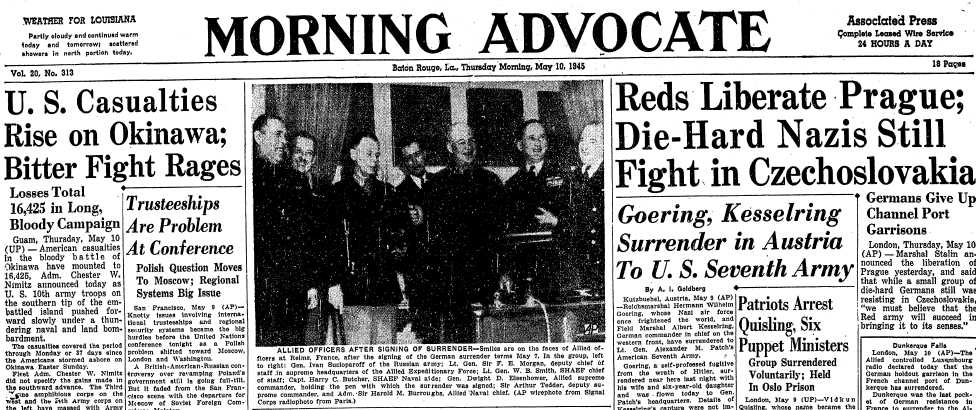
Similarly an entire page from this Illinois newspaper speaks to the ongoing war effort in the Pacific and “an invasion of Japan.”
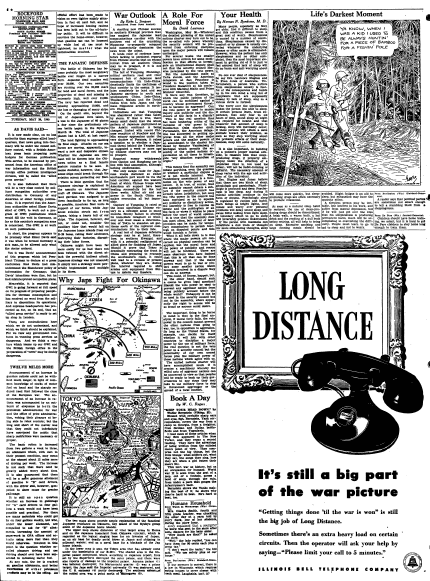
Troops Celebrate V-E Day; Wary of Invasion of Japan
My father, a 1st lieutenant in the U.S. Army Infantry, told me years later that, while he and his buddies all toasted V-E Day, they felt that being reassigned to fight what they thought was the inevitable invasion of Japan might mean their deaths.
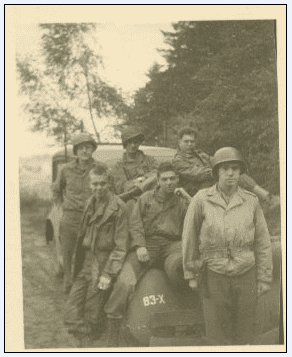
In my father’s words:
We all felt that if we had lived through the hell of the war in Europe it was only because we were just damn lucky, and our luck would surely run out in the Pacific and an invasion of Japan.
Despite this apprehension due to the continuing war against Japan, there was good news on the home front all the same. Even though rationing continued until 1946, a return to normalcy seemed in sight after V-E Day was announced.
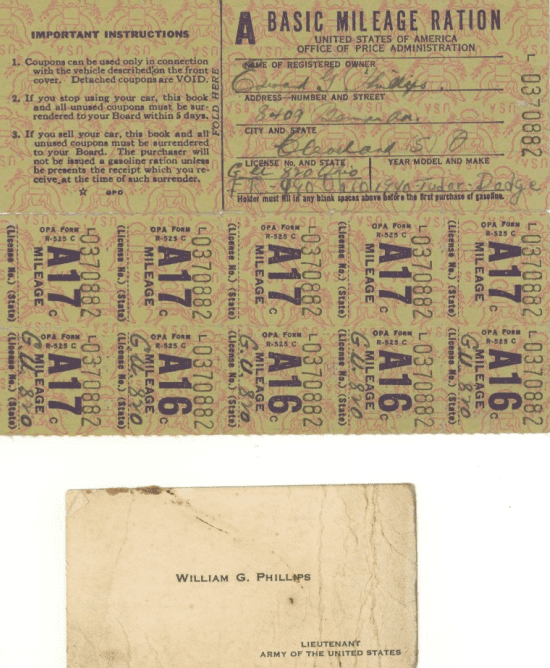
However, with the loss of over 400,000 servicemen and women, many families would never return to “normal.”
Did you have family members who served in World War II? My father only spoke of his service one time to my children and me. I hope you were able to document your family stories surrounding WWII and after V-E Day. They are certainly crucial stories to include in our family trees.
I’d be interested in knowing if you have been able to do this. Simply leave me a comment below if you would.
Peace.
